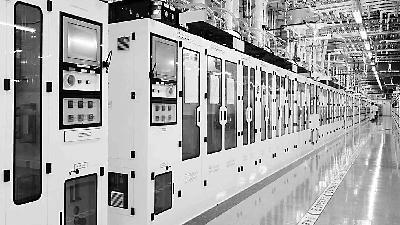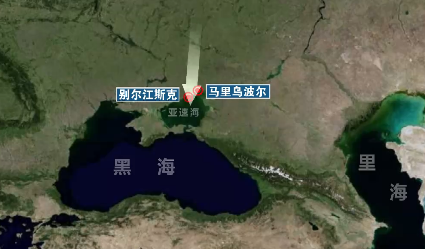South Korean semiconductor raw materials have not yet been "off -Japan"
Author:Global Times Time:2022.06.30

Samsung Group's chip production workshop.
The newspaper in Japan, a special reporter, Yue Linwei Song Yi
In the past three years after the Japanese government's control measures for South Korea's export chip materials, South Korea's domesticization process in related materials and equipment is still "in place". The situation that can be "decoupled" with Japan, Japan and South Korea have not changed in the chip supply chain.
In July 2019, the Abe Cabinet in Japan adjusted the preferential policies of South Korea's export preferential policies on the "raw material that may be used in the military" on the grounds of "serious damage to the trust relationship between the two countries". Export control of key materials manufactured by "hydrogen hydrogen", "EUV" and "fluoride polytamide", and review export items individually.
The South Korean government strongly opposed it, saying that this was a "economic retaliation" implemented by the Japanese Supreme Court to the Supreme Court of South Korea on the "economic retaliation" implemented by Japanese companies for compulsory recruitment of Korean workers during World War II. Since then, the movement of Japanese goods in South Korea, Japan and South Korea have been considered to deteriorate to the "lowest point after World War II".
Since then, South Korea has been promoting the localization of related raw materials. At that time, South Korean President Wen Zaiyin once took the lead in visiting the domestic chip -related corporate base of South Korea to encourage the localization process of related materials. The South Korean government invested 2 trillion won (about 10.3 billion yuan) to support related R & D each year. Wen Zaiyin once proudly stated that "turning the crisis into an opportunity."
However, the relevant "break -out" moves are not smooth. Of the three limited chip materials, the number of hydrogen exported to South Korea in 2020 decreased by 86%from 2018, but it has rebounded from 2021, an increase of 34%year -on -year. From January to April of the year, it increased by 30%year -on -year, and the current increase is still continuing.
In addition, the export volume of Japanese light -engraved glue to Korea has also maintained a double -digit growth year -on -year, and the fluoride polytamide only decreases slightly. Relevant sources of Japanese material manufacturers generally believe that in the past three years, other chip -related materials have not been particularly affected by the export of chip except hydrogen fluoride.
In addition, chip manufacturing equipment is the largest of South Korea's imported products from Japan. In 2021, imports increased by 44%year -on -year to $ 6.3 billion. In the field of chip manufacturing, the Korean trade deficit will continue to expand.
According to Japanese media reports, Japanese companies have 80 % to 90 % of the market share in the field of high -purity hydrogen fluoride. The cleaning process of hydrogen fluoride is used after the wafer formation circuit. The photoretimeter is a sensitive material, which transmits the circuit pattern to the substrate by irradiation. JSR and Tokyo Application Chemical Industry have 90 % of the market share in this field. Fluoride is a key material for OLED. Korean OLED technology is the world's leading worldwide, accounting for more than 70%of global production capacity.
Nikkei reports that the Japanese government's measures have caused South Korean companies to have a sense of confidence in the Japanese side. Semiconductor giants Samsung Electronics and SK Hynix worry about the risk of being forced to stop production. Therefore, they began to provide funding support and technical cooperation to suppliers that can replace Japanese manufacturing materials. Analysts in the raw material industry of IBK Investment Securities Company said that if alternative materials are to be introduced, the major Korean chip manufacturers must stop the chip production line, so Korean companies will be more cautious about introducing domestic materials.
The "Japan Economic News" said that the key to whether South Korea can achieve the localization of semiconductor raw materials in the future is the attitude of Yin Xiyue's government. Yin Xiyue's government did not use "localization" in the latest economic policy policy. However, there are also opinions within the Korean government that from the perspective of economic security, the localization of raw materials and manufacturing devices is necessary. ▲
- END -
The Black Sea Shipping is blocked. "European granary" is difficult to transport food. How to break through?Ukraine has a new plan ...

According to CCTV News, on July 2nd, local time, Ukraine Agricultural Policy and M...
Norway suddenly, many casualties

According to Agence France -Presse reports on the 25th, the Norwegian police said ...